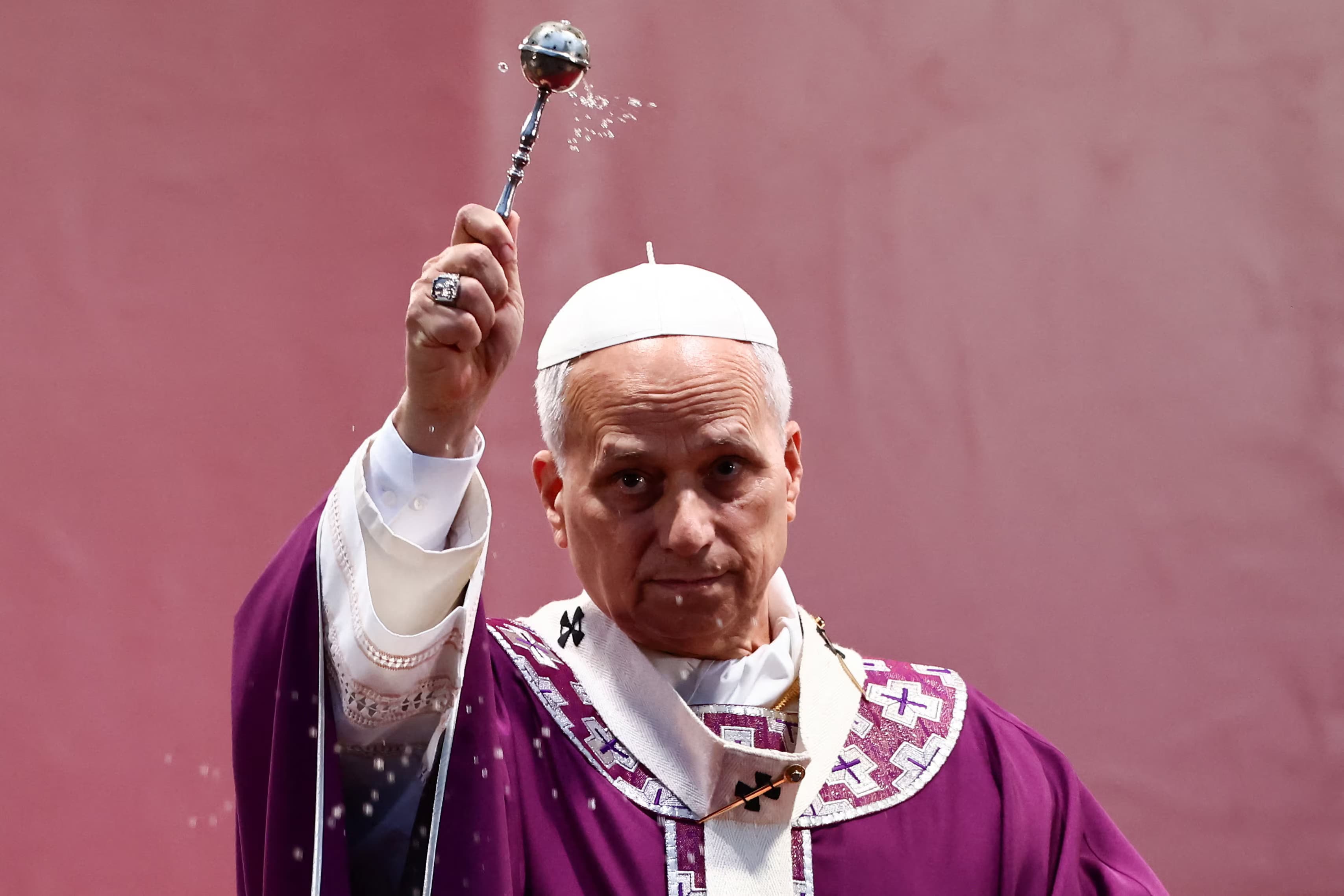We're loading the full news article for you. This includes the article content, images, author information, and related articles.
The Pontiff's call for humane treatment of detained migrants in the United States resonates with ongoing concerns for the Kenyan diaspora community, which faces increasing uncertainty amid shifting U.S. immigration policies.

Pope Leo XIV has called for a “deep reflection” in the United States regarding the treatment of detained migrants, emphasizing the need to protect their spiritual rights. Speaking to journalists on Tuesday, November 4, 2025, at the papal retreat of Castel Gandolfo near Rome, the Chicago-born pontiff addressed several pressing geopolitical issues, including U.S. military actions off the coast of Venezuela and a fragile ceasefire in the Middle East.
“Many people who have lived for years and years and years, never causing problems, have been deeply affected by what is going on right now,” Pope Leo stated, referencing the ongoing immigration crackdown in the U.S. His comments come after reports that Catholic clergy were denied access to provide Holy Communion to migrants at the Broadview ICE Detention Center near his native Chicago on November 1. The Pope urged U.S. authorities to allow pastoral workers access to detention facilities, stating, “Many times they’ve been separated from their families... their own spiritual needs should be attended to.”
Beyond the issue of migrant rights, the Pope also commented on escalating military tensions. When asked about recent U.S. military strikes against suspected drug traffickers off the coast of Venezuela, he warned the actions were “increasing tension” and advocated for dialogue. Since September 2025, the U.S. military has conducted at least 16 strikes on vessels in the Caribbean and Pacific, resulting in at least 66 deaths. The Trump administration has positioned these actions as a counter-narcotics mission, though they have heightened diplomatic friction with Venezuela.
Addressing the Middle East, Pope Leo acknowledged that the current ceasefire between Israel and Hamas, which began on October 10, 2025, remains “very fragile.” The truce has seen the exchange of hostages for Palestinian prisoners and an increase in aid to Gaza, but recent days have been marked by sporadic violence and the grim process of recovering bodies. The Pope stressed the need for a sustainable path forward that guarantees “the rights of all peoples.”
While the Pope’s remarks were directed at Washington, they hold significance for Kenya. The United States is home to the largest Kenyan diaspora, with an estimated 157,000 Kenyan-born residents as of 2020, including an estimated 30,000 undocumented individuals. Recent changes in U.S. immigration policy, such as the termination of automatic work permit extensions effective October 30, 2025, have created significant uncertainty for many Kenyans living and working in the country. These policies, part of a broader crackdown, could impact the substantial diaspora remittances, which are a key revenue stream for Kenya, amounting to over KSh 607 billion so far in 2024.
The Catholic Church in Kenya has consistently advocated for the rights of migrants and refugees. In a statement on September 29, 2024, for the World Day of Migrants and Refugees, the Kenya Conference of Catholic Bishops (KCCB) urged the government to address the root causes of displacement and protect vulnerable groups. Bishop Henry Juma Odonya, Chairman of the KCCB’s Department of Refugees, Migrants, and Seafarers, called for compassion and just responses to the plight of migrants, reflecting a position that aligns closely with the Pope's recent global appeal. As Kenya hosts over 600,000 refugees, primarily from Somalia and South Sudan, the principles of humane treatment and protection of the displaced are central to the nation's own challenges.
The Pope’s call for spiritual care for detainees also finds echoes in long-standing advocacy from Catholic bodies. For years, organizations like the Jesuit Refugee Service have highlighted the difficulties in gaining pastoral access to detention centers and ensuring detainees can receive religious literature and counseling, a fundamental aspect of human dignity. The pontiff's intervention amplifies these concerns on the world stage, adding moral weight to the argument that immigration enforcement must not come at the cost of fundamental human rights—a principle with deep resonance for Kenyans both at home and abroad.
Keep the conversation in one place—threads here stay linked to the story and in the forums.
Sign in to start a discussion
Start a conversation about this story and keep it linked here.
Other hot threads
E-sports and Gaming Community in Kenya
Active 9 months ago
The Role of Technology in Modern Agriculture (AgriTech)
Active 9 months ago
Popular Recreational Activities Across Counties
Active 9 months ago
Investing in Youth Sports Development Programs
Active 9 months ago